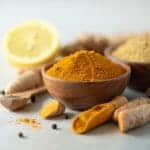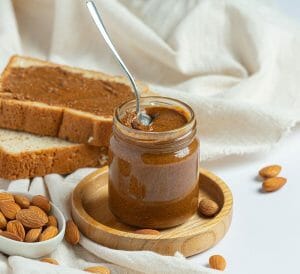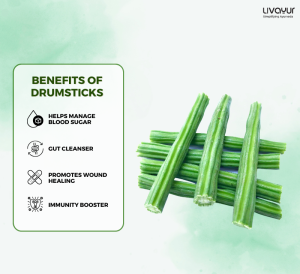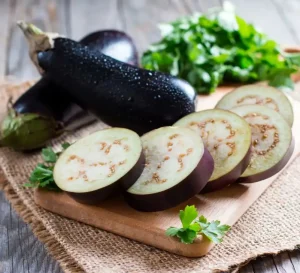
Kala jeera or black cumin (Nigella sativa) is an annual herb revered as a holy herb in various parts of the world. Kala jeera in English is also known as Black Seed, Black Caraway, Roman Coriander, or Fennel Flower. Kala jeera has been used in traditional medicine and culinary practices for several centuries due to its potent medicinal properties and distinct flavor. [1] In this comprehensive article, we will try to understand the various benefits, uses, dosage, and potential side effects of kala jeera.
Nutritional value of kala jeera
Here’s the nutritional composition of Turkish black cumin. [6]
| Name | Amount |
| Fat | 39.37% |
| Protein | 21.65% |
| Carbohydrates | 32.58% |
| Ash | 5.14% |
| Linoleic acid | C18:2, 57.49% |
Benefits of kala jeera
1. Enriched with antioxidants:
Kala jeera is a rich source of antioxidants, such as thymoquinone, which helps combat oxidative stress and neutralize the harmful impact of free radicals in the body. [2]
2. Has anti-inflammatory properties:
The active compounds in kala jeera possess anti-inflammatory effects that may help alleviate various inflammatory conditions, such as arthritis and asthma. [2]
3. Offers antidiabetic effects:
Kala jeera benefits include their antidiabetic effects that help regulate blood sugar levels and offer support to individuals with diabetes. [2]
4. Promotes cardiovascular health:
Some studies suggest that kala jeera may help lower blood pressure and improve your cholesterol levels, promoting heart health. [2]
5. Prevents neurological disorders:
Kala jeera shows neuroprotective potential, which helps safeguard brain health and reduce the risk of neurodegenerative disorders. [2]
6. Acts as a digestive aid:
According to Ayurvedic doctrines, it helps in the balancing and stabilizing of Vata, Pitta, and Kapha Doshas and is known for its digestive benefits. It helps improve digestion, relieve indigestion, and reduce bloating and flatulence. [3]
Also learn how to pacify vata , pitta and kapha dosha
7. Promotes skin and hair health:
The powder and oil derived from kala jeera seeds are used in skin care products and are believed to help with sun protection, and skin infections as well as improve skin and control hair fall. [4]
8. Offers antimicrobial effects:
Kala jeera exhibits antimicrobial properties, which may help combat various bacterial and fungal infections. [4]
Uses of kala jeera
1. Culinary Use:
Kala jeera seeds are commonly used as a spice in various cuisines, adding a unique and aromatic flavor to dishes. It is used in curries, bread, soups, pickles, and more.
2. Herbal Remedies:
Kala jeera is a key component in many traditional herbal remedies for airway disorders, pain such as chronic headache and back pain, infection, inflammation, diabetes, paralysis, hypertension, and digestive tract-related problems.
3. Topical Application:
The oil extracted from kala jeera seeds is applied topically for various beauty and health purposes as well as for blisters, nasal abscesses, eczema, and swollen joints. [2]
Dosage of kala jeera
The appropriate dosage of kala jeera may differ depending on the specific health issue and the form of intake (seeds, oil, capsules, etc.). For culinary use, kala jeera seeds are typically used in small amounts to season dishes. As a dietary supplement, kala jeera capsules are available in various strengths, and the recommended dosage can range from 250 mg to 2500 mg per day. [5]
FAQs
1. What are the side effects and precautions you should bear in mind while taking kaala jeera?
Kala jeera is considered safe for most people when taken in moderate amounts as a spice or food seasoning. However, some individuals may experience mild allergic reactions or gastrointestinal discomfort.
• Pregnancy and Breastfeeding: Pregnant women and breastfeeding moms should exercise caution and avoid consuming large quantities of kala jeera, as its effects on these conditions are not well-studied.
• Blood Sugar Levels: Kala jeera may lower blood sugar levels. Diabetic patients should closely monitor their blood sugar levels closely when consuming kala jeera as a supplement.
• Bleeding Disorders: Kala jeera may have blood-thinning effects. People with bleeding disorders or those taking anticoagulant medications should discuss with a healthcare professional before using kala jeera supplements.
• Surgery: Since kala jeera may interfere with blood clotting, it is advisable to stop using it at least two weeks before any scheduled surgery.
• Drug Interactions: Kala jeera may interact with certain medications. If you are on any prescription medications, consult your doctor before starting kala jeera supplements.
2. What are the health benefits of kalonji or kala jeera in Hindi according to Ayurveda?
• Vatanuloman (Ventilation): It is believed to balance excess vata dosha, aiding digestion, reducing bloating, and promoting overall wellness. Its warming nature supports vata-related imbalances, aligning with traditional Ayurvedic principles for optimal health.
• Deepan (Lighting up): Kala Jeera is believed to enhance appetite and improve digestion, promoting efficient nutrient absorption.
• Pachan (Digestion): It supports digestion by alleviating indigestion, bloating, and gas, aiding in overall gastrointestinal comfort.
• Garbhasya sudhikar (Pregnancy): Kala Jeera is thought to contribute to cleansing and purifying processes in the body, promoting overall wellness.
• Stnyavardhak (Breast Milk): It is considered beneficial for promoting the production of breast milk in lactating mothers.
• Swedal (Sweat Glands): Kala jeera benefits include its diaphoretic properties that may help induce sweating, supporting the body’s detoxification process.
• Krimighna (Worms): It is traditionally used for its potential antiparasitic effects, addressing issues caused by parasites.
3. Is it advisable to consume black cumin water on a daily basis?
Generally, kalonji kala jeera water offers health benefits without notable adverse effects, unless consumed excessively. Over-consumption of cumin water may result in acidity, heavy menstrual bleeding, and low blood sugar levels.
Conclusion
Kala jeera is a powerhouse of medicinal properties and culinary delights. Its rich history in traditional medicine and its versatility in various culinary practices make it a popular choice for those seeking health benefits and a distinctive taste. While it offers numerous potential health advantages, it is crucial to use kala jeera responsibly and be mindful of any existing health conditions or drug interactions.
Disclaimer
This article is written from a health and wellness perspective only and is not a piece of medical advice. Kindly seek the help of a certified medical practitioner before initiating any treatment.
References
- Black cumin (Nigella sativa L.) – a review
- Nigella sativa L. (Black Cumin): A Promising Natural Remedy for Wide Range of Illnesses
- Ethnobotanical review of Bunium bulbocastanum (Black Cumin) for the treatment of diseases: The clinical and mechanistic evidence
- Nigella sativa seed, a novel beauty care ingredient: A review
- Review on Clinical Trials of Black Seed (Nigella sativa ) and Its Active Constituent, Thymoquinon
- Nutritional Composition and Volatile Compounds of Black Cumin (Nigella sativa L.) Seed, Fatty Acid Composition and Tocopherols, Polyphenols, and Antioxidant Activity of Its Essential Oil
























